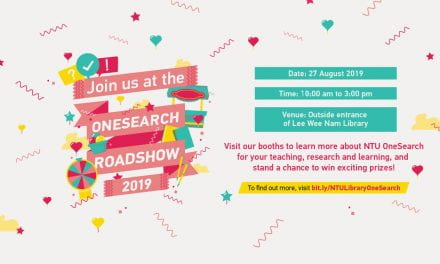NTU Libraries recognizes the important role its librarians will play as the University places greater emphasis on open access research data sharing. Data sharing is meaningful only when data is discoverable and reusable. The Digital Curation Centre (UK) was invited to conduct two workshops for librarians on 8th and 9th March 2017 to prepare them in potential new roles in research data management and sharing advocacy and advisory related services. The Digital Curation Centre (DCC) is an internationally-recognised centre of expertise in digital curation with a focus on building capability and skills for research data management.
On the first day, the trainers, Kevin Ashley and Jonathan Rans shared with participants methods for engaging with researchers on the benefits of open data sharing and enable them to dispel common fears. Librarians had a chance to examine different approaches and discuss what might be adapted for the NTU context. The day ended with practical advice on supporting researchers to select, license and publish their data.
Day 1 “Supporting open research at Nanyang Technological University” workshop slides and material: Introduction, Data selection licensing, Engaging researchers with services, Finding repository, How are researchers supported exercise on Data sharing barriers.
On the second day, participants learned how to identify requirements for RDM support and were introduced to tools which facilitated gap analysis. One example was the use of the RISE (the Research Infrastructure Self Evaluation Framework) framework. Such self-assessment and planning tools will be useful as the University prepares to augment its technical and service infrastructure to support good research data management practices.
Participants of the workshops wrapped up the 2-day workshop with comments like “Inspiring, makes me want to foray into RDM in the library” , “I am now more confident and have a deeper understanding of data management”.
Day 2 “Supporting open research for librarians (advanced)” workshop slides and material: Introduction, Designing services model, Disciplinary data issues, Supporting data management planning.







